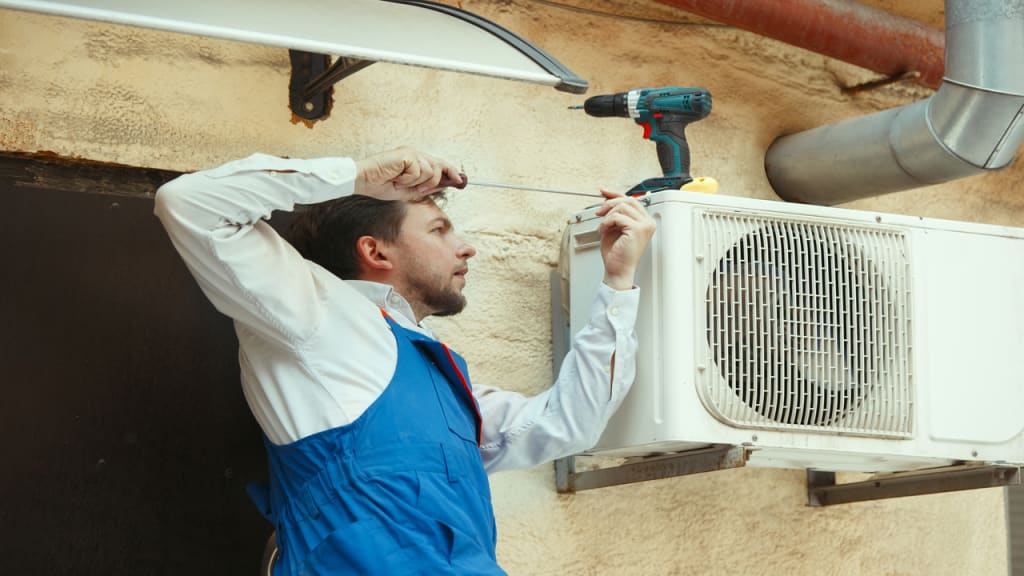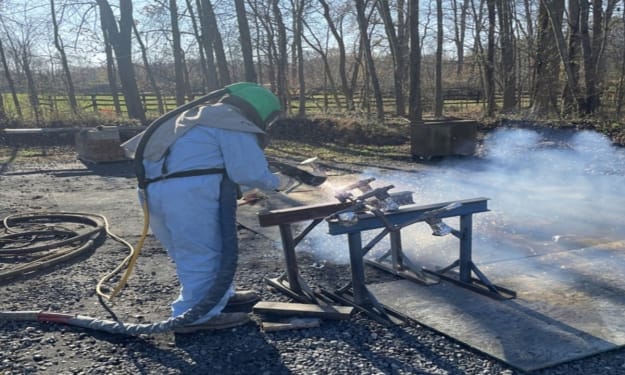How to Extend the Lifespan of Your Heat Exchanger?
Heat Exchanger Contractors NJ

Heat exchangers play a critical role in many industrial and commercial processes, from heating and cooling buildings to processing food and chemical products. However, they are also subject to wear and tear over time, which can lead to reduced efficiency and even failure if not properly maintained.
It's crucial to work with reputable heat exchanger contractors in NJ who can provide regular maintenance and repair services. These professionals can identify potential issues before they become major problems, clean the exchanger to prevent corrosion and buildup and replace worn-out parts to ensure that the equipment runs smoothly.
To extend the lifespan of your heat exchanger, there are several key steps you can take, such as:
Take care upon start-up.
When starting up your heat exchanger, make sure to vent it by opening and closing the valves slowly. This will aid in the prevention of pressure spikes and water hammers.
Refrain from excessive pressure or temperature changes and take the necessary precautions to avoid situations where pressure spikes can occur. If this is not done correctly, you may end up with leaks and a blown-out elastomeric gasket.
Utilize downstream filters and strainers.
The use of downstream filters and strainers during start-up can eliminate particle contamination and protect the heat exchanger. During the work process, it is common for weld beads and other debris to be absorbed into the tank piping and pumped through the system.
If debris ends up in your heat exchanger, it can stick and cause a rise in pressure drop and a decrease in heat transfer efficiency. This can negatively impact your heat exchanger's performance. To prevent this, it's crucial to ensure that large particles are filtered out before the liquid enters the heat exchanger.
Check daily for signs of temperature, pressure, or external leaks.
It is easier to prevent a heat exchanger leak than to stop it after it occurs. Therefore, it is best to take the necessary measures to maintain the temperature and pressure of the heat exchanger.
When purchasing a heat exchanger, the manufacturer typically provides the package's overall dimensions based on the number of plates and grids in the unit. This includes the distance between the inside of the head and the follower.
Therefore, it is recommended to check the measurement at least once a year and tighten the device if necessary. Additionally, be sure to pay attention to corrosion or other damage that leaks can cause.
Tension bolts should be cleaned and oiled on a regular basis.
Keeping the components of a heat exchanger clean is an important part of maintaining its life and efficiency. Make sure tension bolts are regularly cleaned and installed correctly. It is also important that the tension bolts are well-lubricated.
These preventive measures protect the life cycle of the tension bolts and, therefore, the entire heat exchanger. Like any other piece of equipment, turnbuckles are prone to corrosion over time. Keeping them well-lubricated or coated with grease will keep your turnbuckles working efficiently for as long as possible.
Always keep standby devices clean and dry.
It is important to keep all waiting equipment in the best possible condition - this includes keeping it clean and dry. When the heat exchanger is removed from service, it must be washed with clean water and completely drained.
The reason for the decrease in the efficiency of heat exchangers is due to old gaskets that cause external leaks and deposits that reduce heat transfer and block the channels.
Therefore, it is necessary to clean and maintain the heat exchanger to achieve better performance. In addition, the presence of standby devices can help solve the low-efficiency problem of a heat exchanger faster.
Protects heat exchangers against splashing water and rain.
Excessive exposure to water splashes or rain, can harm the heat exchanger. Furthermore, UV radiation and other electrical sources can degrade heat exchanger performance.
To preserve the plate heat exchanger in good working order, make sure that the surrounding environment does not harm it.
As a result, maintain the spares in a sealed bag and store them somewhere dry, cold, and dark, away from other equipment like machinery or the light anchor.
Schedule a cleaning routine.
The efficiency of the heat exchanger is substantially determined by its pollution factor. Mud, grime, and other undesired things that build on the tiles create contamination. This contamination buildup decreases the flow rate and reduces the heat exchanger's efficiency over time.
So, it is very important to complete scheduled CIP cleanings on time.
Conclusion.
If you require reliable and professional heat exchanger contractors in NJ, then NJ Reliable Coating LLC is an excellent option. With their extensive experience in the field, they can provide you with top-quality services to meet your specific needs and requirements.
So, don't hesitate to reach out to them today to learn more about their services and how they can help you with your heat exchanger needs.
About the Creator
Enjoyed the story? Support the Creator.
Subscribe for free to receive all their stories in your feed. You could also pledge your support or give them a one-off tip, letting them know you appreciate their work.





Comments
There are no comments for this story
Be the first to respond and start the conversation.